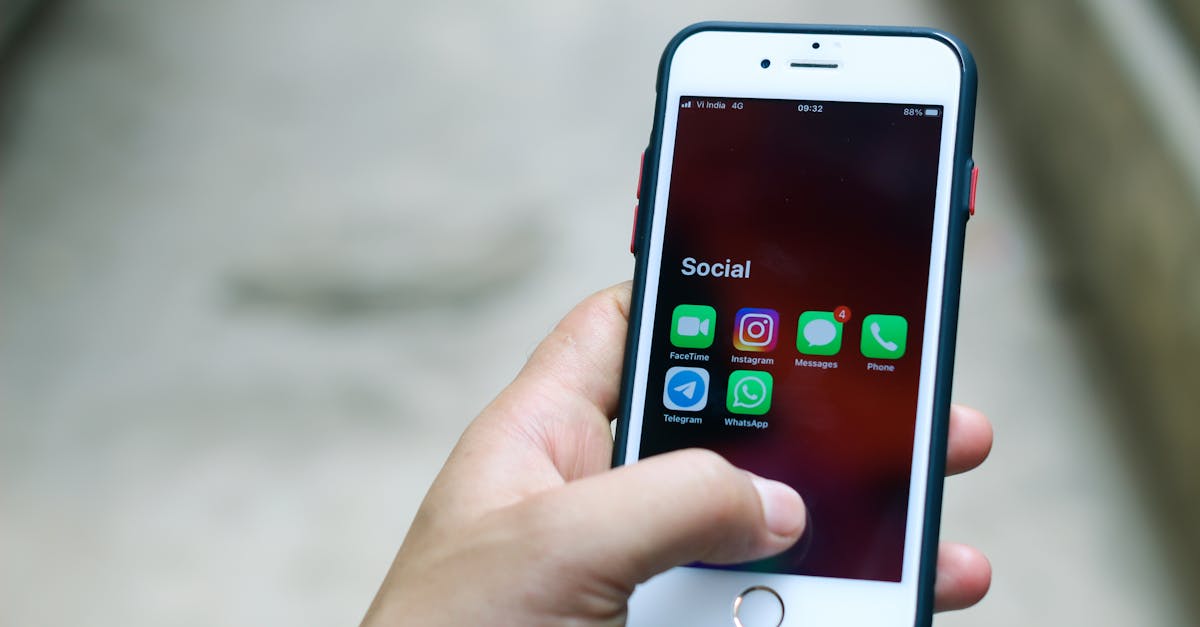In a world where privacy is king, the quest for hiding messages on an iPhone feels like a secret agent mission. Who wouldn’t want to keep those juicy texts or embarrassing memes under wraps? Whether it’s a surprise party plan or a chat that’s best kept between friends, finding ways to shield messages can be a real game changer.
Table of Contents
ToggleCan You Hide Messages on iPhone?
Hiding messages on an iPhone enhances privacy for many users. Various methods exist to achieve this goal effectively.
Using built-in features like Hide Alerts allows users to silence notifications for specific conversations. This prevents intrusive notifications from appearing on the lock screen.
Another option involves deleting conversation threads. Users can swipe left on message threads in the Messages app and select “Delete.” This action removes the conversation from sight.
Archiving messages isn’t available natively, but third-party apps can provide this functionality. Consider applications designed for message management that offer additional privacy features.
For those seeking an extra layer of security, utilizing locked folders for sensitive information offers protection. Some apps, like Notes or specific messaging apps, allow the creation of locked folders to store private messages out of immediate view.
It’s also possible to utilize Face ID or Touch ID for apps containing private messages. By enabling these security features, unauthorized access becomes difficult, ensuring confidentiality.
One more approach involves messaging apps with enhanced privacy settings, like Signal or Telegram. Such apps often provide options for disappearing messages or additional encryption techniques, making them suitable for users focused on privacy.
Exploring these options helps iPhone users manage message visibility effectively. Techniques vary, so individuals can choose what best fits their preferences and security needs.
Method 1: Using Do Not Disturb
Using Do Not Disturb on an iPhone allows users to manage message visibility effectively. This feature silences notifications, providing a sense of privacy and focus.
Setting Up Do Not Disturb
Setting up Do Not Disturb is straightforward. Users access the Settings app and select “Focus.” From there, tap “Do Not Disturb” to activate it. This mode can be scheduled for specific times or easily turned on manually. Notifications from all apps get silenced, ensuring that unexpected messages won’t appear on the screen.
Customizing Allowances
Customizing allowances turns Do Not Disturb into a tailored experience. Users can add specific contacts under “People” to receive notifications while still keeping most alerts hidden. This customization filters communications effectively, allowing important messages through while keeping others private. Choices extend to apps, enabling users to decide which apps can still send notifications during this mode.
Method 2: Archiving Messages
Archiving messages allows users to store conversations without permanently deleting them. While iPhones don’t support archiving natively, third-party apps provide advanced message management options.
How to Archive Messages
To archive messages on an iPhone, users can start by downloading third-party apps designed for this purpose. Apps like All Mail or Keep enable users to store important conversations in a dedicated space, away from the main Messages app. Users usually simply import messages into these applications and remove them from view within the Messages app, keeping personal information discreet.
Pros and Cons of Archiving
Archiving offers several benefits. First, it helps maintain organization by keeping fewer messages visible. Second, users can retrieve archived messages when necessary, preventing the loss of important conversations. However, downsides exist as well. Third-party apps might require access to personal data, raising privacy concerns. Additionally, managing multiple apps can complicate message organization. Overall, weighing these factors aids in making informed decisions about message storage.
Method 3: Using Third-Party Apps
Third-party apps can provide effective solutions for hiding messages on an iPhone. Many applications focus on enhancing privacy by offering features designed specifically for discreet communication.
Recommended Apps for Hiding Messages
Several apps stand out for their capabilities. Signal offers end-to-end encryption and the option for disappearing messages, making it a strong choice for secure conversations. Telegram provides a secret chat feature with self-destructing messages. Vaulty allows users to hide not just messages, but also photos and videos securely. Private Message Box enables message encryption, ensuring that conversations stay confidential. Each app prioritizes user privacy and presents a unique user experience, catering to different needs.
Safety Considerations
Using third-party apps comes with safety considerations. Users must carefully research each app’s reputation and user reviews, as not all prioritize data security equally. Limit permissions for each app to prevent unauthorized access to personal information. Regular updates help maintain security, so checking for them frequently is crucial. Additionally, enabling two-factor authentication significantly enhances protection against potential breaches. Ensuring devices are kept secure with updated operating systems can further prevent vulnerabilities.
Maintaining privacy on an iPhone is essential for many users. With various methods available to hide messages, it’s easier than ever to keep personal communications secure. From using built-in features like Hide Alerts and Do Not Disturb to exploring third-party apps with advanced privacy settings, users have options to suit their needs.
By implementing these strategies, individuals can enjoy peace of mind knowing their private conversations remain confidential. Whether it’s for planning surprises or safeguarding sensitive information, taking control of message visibility is a smart move in today’s digital landscape. Embracing these tools can lead to a more secure and organized messaging experience.



